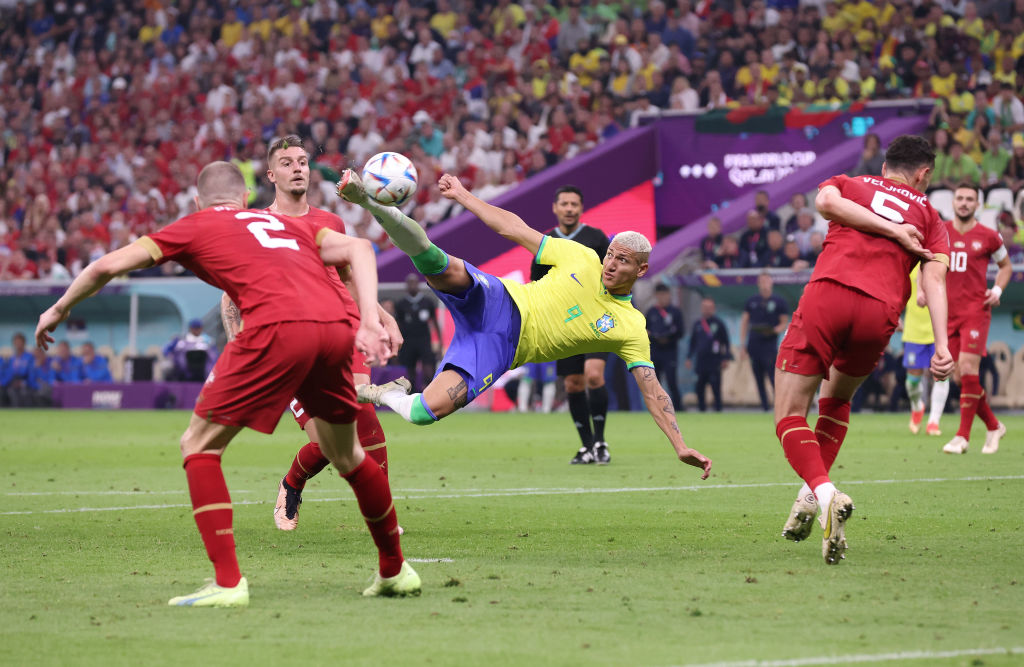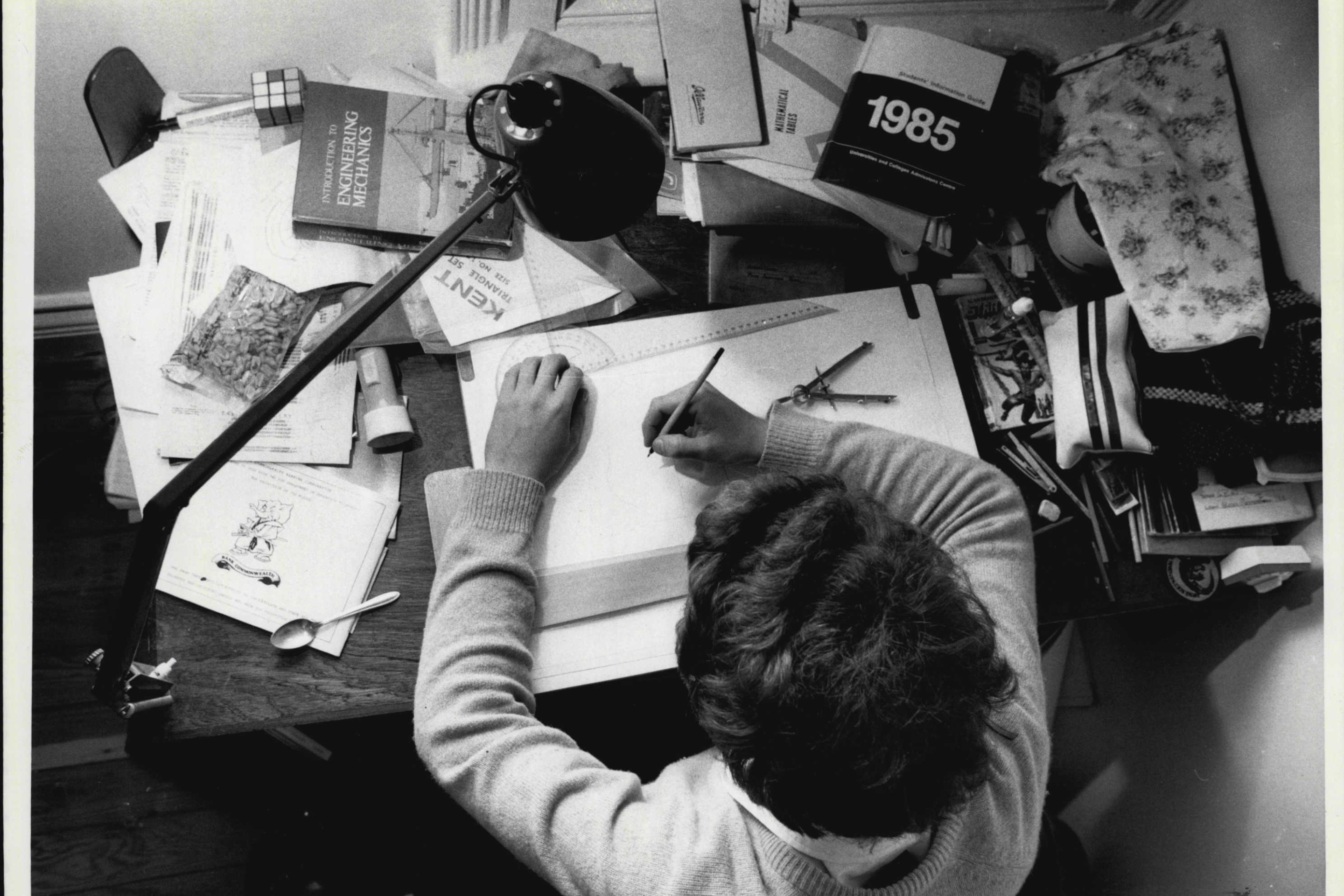There is no stage like the World Cup. That's an easy cliché to deploy about any big sporting event, but it really is true about this tournament. Soccer's unrivaled global popularity and importance creates the conditions under which careers and legacies, even those belonging to the most talented and accomplished players in the game, can be defined by a handful of games that come around once every four years. No other team sport possesses a competition nearly as important.
For some players, the unique stakes of the World Cup can be kind of a drag. You think of a guy like Lionel Messi, the greatest player who ever lived and who has won everything there is to win in his club career, and you want to scoff at the idea that failing to win a tournament so influenced by randomness and the vagaries of non-individual sports would leave any kind of smudge on his career. It is in fact totally logical to wave away a thought like that, but logic rarely plays a role in determining what matters in sports. What makes the World Cup matter is the number of fans you see openly weeping in the stands at each tournament, the number of players whose career decisions are always made with an eye towards the national team, and the ways in which a nation's entire relationship to the sport of soccer can change based on one tournament performance. There's a flip side to that coin, though. For as often as the World Cup can tie a millstone to a player or a team or a country, it can also fit anyone, at any time, with a pair of wings.
On Thursday, during Brazil's 2-0 group-stage win over Serbia, Richarlison started flying. The Seleção's starting striker scored both of Brazil's goals in a dominant team performance, and it's the second strike that will live long in the memory:
ON. REPEAT.
— FOX Soccer (@FOXSoccer) November 24, 2022
Can't stop watching this INSANE goal by Richarlison 😱🤯 pic.twitter.com/xYmwln4Ajk
Even devoid of context, this is a goal worthy of poetry. Contained in those two touches is everything there is to love about soccer. In the first, a clumsy one that sent the ball spinning up to a seemingly unmanageable height, you see the chaos bred into a game that asks 22 players to run around a gigantic field and try to guide a ball into a tiny net using only their feet and heads. In the second, a whirling scissor-kick creating a perfectly placed and paced shot, you see the physical and mental genius that players are asked to find within themselves in order to tame all that chaos. The opportunity to create a goal like this is why the game exists in the first place.
The context matters plenty here, too. Richarlison has had his eyes on this World Cup for years now, and with good reason. Despite being a great forward—you have to be one of those to be the starting No. 9 for Brazil—Richarlison's played very few truly meaningful games in his club career. Before his transfer to Tottenham this past summer, he'd only ever played Premier League games for Watford and Everton, two non-contenders that could only ask him to apply his immense talent to relegation fights rather than the Champions League campaigns his talent deserved. Even for the best players in the world, the climb from one level of success to the next can be long, slow, and halting. But nothing can pluck a player from the purgatory of his club career quite like the World Cup, which comes along every four years and builds an expressway to heroism for any player good enough to get on the field.
Nobody seemed to understand that fact better than Richarlison over the last few seasons. The evidence was in how hard and well he played every time he got a call-up to the national team, which earned him a deserved starting spot on a team overflowing with world-class attacking players, many of whom are objectively better and more successful than him. It was also in the tears that poured down Richarlison's face after he suffered a calf injury during a game for Tottenham a few weeks ago, which at the time he feared would rule him out for the World Cup.
the still alone of an emotionally exhausted richarlison ended me. but his voice. jesus. please don’t let it be serious. please let him recover to full strength soon.. 🥺 pic.twitter.com/rCXwkiGUcf
— coco ^ㅈ^ coys (@constancecoys) October 15, 2022
I think it's fair to say that a lot is riding on this World Cup for Richarlison, not because of what anyone else expects of him, but because of what he expects of himself. Spend enough time watching Richarlison play soccer, or listening to him talk about it, and you'll be struck by how eagerly he seeks out the moment. It's that eagerness that put such a pall over his pre-Tottenham club career—here was a player who wanted nothing more than to find greatness and claim it for himself stuck toiling away on teams that had no hope of pointing him in that direction. All of this makes Richarlison the kind of player who is perfectly suited to take advantage of the singular opportunities the World Cup offers. Only in soccer can you so quickly go from being a good but overlooked player on bad teams, to a solid rotation piece on a good team, to having a starring role in the biggest sporting event in the world.
For all the World Cup brings us, good and bad, nothing fills the heart quite like seeing a player like Richarlison seize his moment. There's a transformative power to it that can't be found in any other sporting event. Richarlison came into Thursday's match against Serbia as a good player still seeking a moment worthy of his talents, and he left it as something else. As the entire Brazil squad was mobbing him in celebration, as his family was celebrating back home, and as the fans in attendance were falling into hysterics, Richarlison was becoming something far greater than he had been before. All it took was two touches and a ball finding the back of the net.





